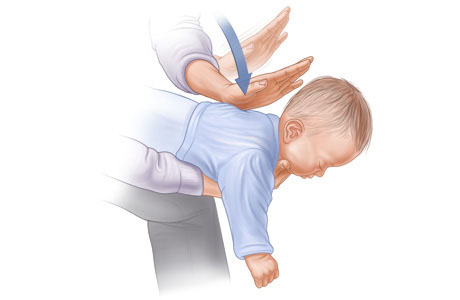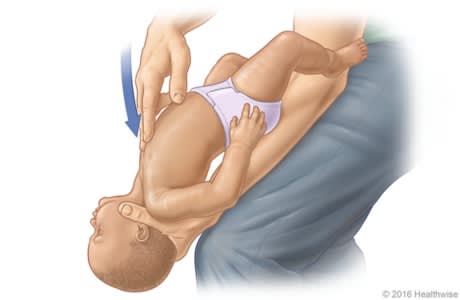Women’s Health Library
Our Health Library information does not replace the advice of a doctor. Please be advised that this information is made available to assist our patients to learn more about their health. Our providers may not see and/or treat all topics found herein.
Choking Rescue for Babies
Overview
If the baby can cough or make sounds, let the baby cough to try to get the object out. If you are worried about the baby's breathing, call 911.
WARNING: Do not begin the choking rescue procedure unless you are certain that the baby is choking.


If a baby can't breathe, cough, or make sounds, then:
- Put the baby facedown on your forearm so their head is lower than the their chest.
- Support the baby's head in your palm, against your thigh. Don't cover their mouth or twist their neck.
- Use the heel of one hand to give up to 5 back slaps between the baby's shoulder blades.
- If the object does not pop out, support the baby's head and turn the baby faceup on your thigh. Keep the baby's head lower than their body.
- Place 2 or 3 fingers just below the nipple line on the baby's breastbone and give 5 quick chest thrusts (same position as chest compressions in CPR for a baby).
- Keep giving 5 back slaps and 5 chest thrusts until the object comes out or the baby faints.
-
If the baby faints, call
911 (if you haven't called already). Then:
- Do not do any more back slaps or chest thrusts.
- Start CPR. If you do rescue breaths, look for an object in the mouth or throat each time the airway is opened during CPR. If you see the object, take it out. But if you can't see the object, don't stick your finger down the baby's throat to feel for it.
- Keep doing CPR until the baby is breathing on their own or until help arrives.
Credits
Current as of: October 1, 2025
Current as of: October 1, 2025








